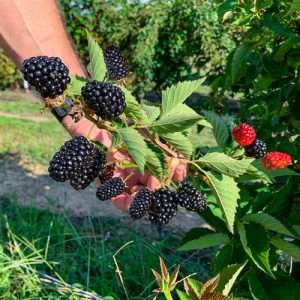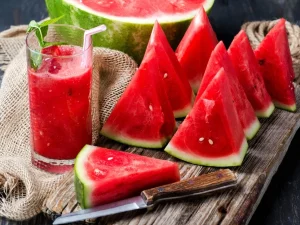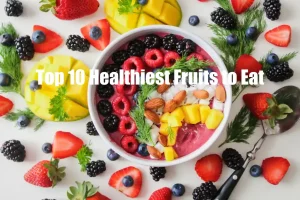
There’s no denying that fruit makes a tasty snack or a delightful addition to any meal. If you are aiming for optimal nutrition, you might be interested in knowing which fruits are the healthiest to consume. Alternatively, if you simply want to incorporate more fruit into your diet, this article will discuss the top choices for maximizing your health benefits through fruit consumption.
Fruits and Nutrition
Eating fruit is more effective in reducing cancer risk compared to taking specific vitamin and mineral supplements. Fruits are rich in essential vitamins, minerals, and phytochemicals. Vitamin C and E contained in fruit can help lower the risk of heart diseases, while potassium and magnesium in fruits have been associated with decreasing blood pressure levels.
Most fruits are low in calories, and high in fiber, and water content, which helps you feel full and reduces the risk of overeating and weight gain.
Fruits of different colors, especially those in orange, red, and yellow hues, contain lutein and carotenes (Vitamin A) that are believed to support immune system function.
Ways To Eat Fruits?
In general, it is essential to include 2 cups of fruit in your daily diet, so be sure to incorporate it at a time that suits you. Fruit can be enjoyed fresh, as juice, or as a dried snack. However, it is not advisable to consume dried fruit regularly due to its high-calorie content, dental risks, and potential for decay. While fruit juice lacks the fiber and nutrients found in fresh fruit, it is best consumed occasionally to avoid dental erosion caused by its acidity.
Fruits Types
There is plenty of fruit growing both throughout the year and in season. Eating a variety of fruit is the key to maximizing the health benefits they provide, just like with vegetables. Some common types of fruit include:
- Pome fruits such as apple and pear
- Citrus fruits such as orange and grapefruit
- Stone fruit such as apricots, cherries, peaches, and plum
- Tropical fruits such as bananas, paw paw, mango, pineapple, and melon
- Berries
Top Healthiest Fruits to Eat Daily
Blueberry
The captivating blue color of these berries goes beyond just being visually appealing. Anthocyanins are responsible for giving these berries, hailed as a true superfood, their vibrant color as well as their anti-inflammatory properties and ability to support brain health. These plant compounds, which serve as a source of nourishment for the beneficial bacteria in your gut, combined with the fiber content of blueberries, also make them a gut-friendly option, rich in antioxidants, and great for heart health.

Read more: When Is Blueberry Season? How To Grow It And Ideal Cooking Recipes
Watermelon
Watermelon, known for its high water content that helps keep you hydrated, is also rich in nutrients like vitamins A and C. These vitamins possess antioxidant properties, which means they can fight against free radicals that contribute to cell damage and various diseases. Watermelon is also containing other antioxidants such as carotenoids, lycopene, and cucurbitacin E.
Kiwi
Researchers discovered that individuals experienced faster onset of sleep, longer duration of sleep, and improved sleep quality when consuming kiwi as a bedtime snack. The sleep-enhancing properties of kiwi may be attributed to its serotonin content, a precursor to melatonin, or the fiber found in kiwi, which has also been proven to promote restful sleep. Kiwi is also a good source of vitamin C and may aid in regulating blood sugar levels.
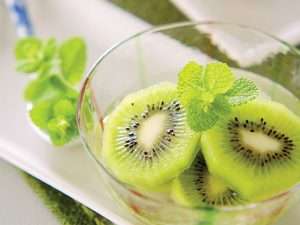
Apple
Grab an apple a day this season and enjoy its fibrous benefits. Keep the skin on for an extra boost of fiber, as skin-on apples contain double the amount of fiber compared to peeled apples. The fiber-rich nature of apples makes them a filling snack option, perfect for when you’re on the move. Aside from being beneficial for your digestive health, apples are packed with antioxidants and have been linked to a reduced risk of chronic diseases like heart disease, cancer, and asthma.
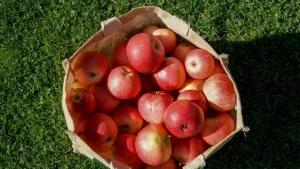
Strawberries
Consuming just one serving of these luscious, crimson fruits provides approximately 80% of your daily vitamin C you need, which is essential for supporting your immune function and skin health. Despite being renowned for their natural sugar content, strawberries also offer a significant amount of fiber and are unlikely to cause significant spikes in blood sugar control. Additionally, they are abundant in polyphenols, plant compounds that may contribute to better cardiovascular health.

Avocado
Avocados are packed with beneficial monounsaturated fats and are an excellent source of fiber (with one avocado containing around 14 grams!). They contain more than double the potassium found in a banana and are associated with maintaining healthy blood pressure, weight management, and promoting satiety by slowing down the digestion process. Avocados also contain high levels of glutathione, an antioxidant known for its anti-cancer properties.
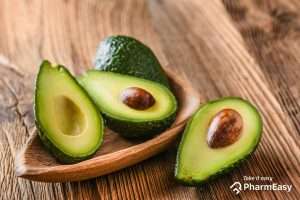
Read more: How Fast Do Avocado Grow?
Lemons
Swap out your regular water for a glass of lemon water to get a boost of vitamin C, with just one ounce providing around 13% of your daily requirement. Consuming fruits rich in vitamin C has been linked to a reduced risk of heart disease. The white pith inside lemon peel contains a soluble fiber called pectin, which is also associated with cardiovascular health. Lemon juice might also help prevent kidney stone formation, although more research is needed.

Cherries
When it comes to cherries, their deep ruby red color indicates that they are packed with antioxidants. Choose the type of cherry that you enjoy the most or have access to, as they all provide a variety of antioxidants. Studies have shown that cherries have anti-inflammatory properties and that tart cherry juice may help reduce pain and speed up recovery after exercise. Like kiwi, cherries may also improve sleep by increasing melatonin levels, leading to better sleep quality and duration.
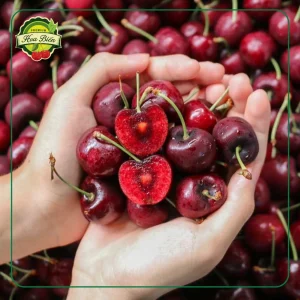
Bananas
Although bananas are often criticized for their high sugar content, their nutritional value surpasses their natural sweetness and become one of the healthiest fruits to prioritize. Bananas are a rich source of potassium and magnesium, along with resistant starch which acts with high fiber content and promotes gut health. This type of starch has been linked to improved insulin sensitivity and reduced inflammation in women with type 2 diabetes.
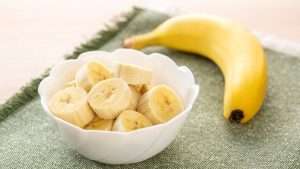
You May Ask: Can You Grow A Banana Tree Indoors?
Blackberries
Blackberries may be small in size but they contain a significant amount of fiber – nearly 8 grams in just one cup. Consuming a diet high in fiber, as recommended by the FDA (at least 28 grams per day), can lead to various health benefits such as lower cholesterol, regular bowel movements, balanced blood sugar levels, and a healthy gut biome. Additionally, blackberries provide vitamin K and manganese, both important for bone health and a strong immune system.
